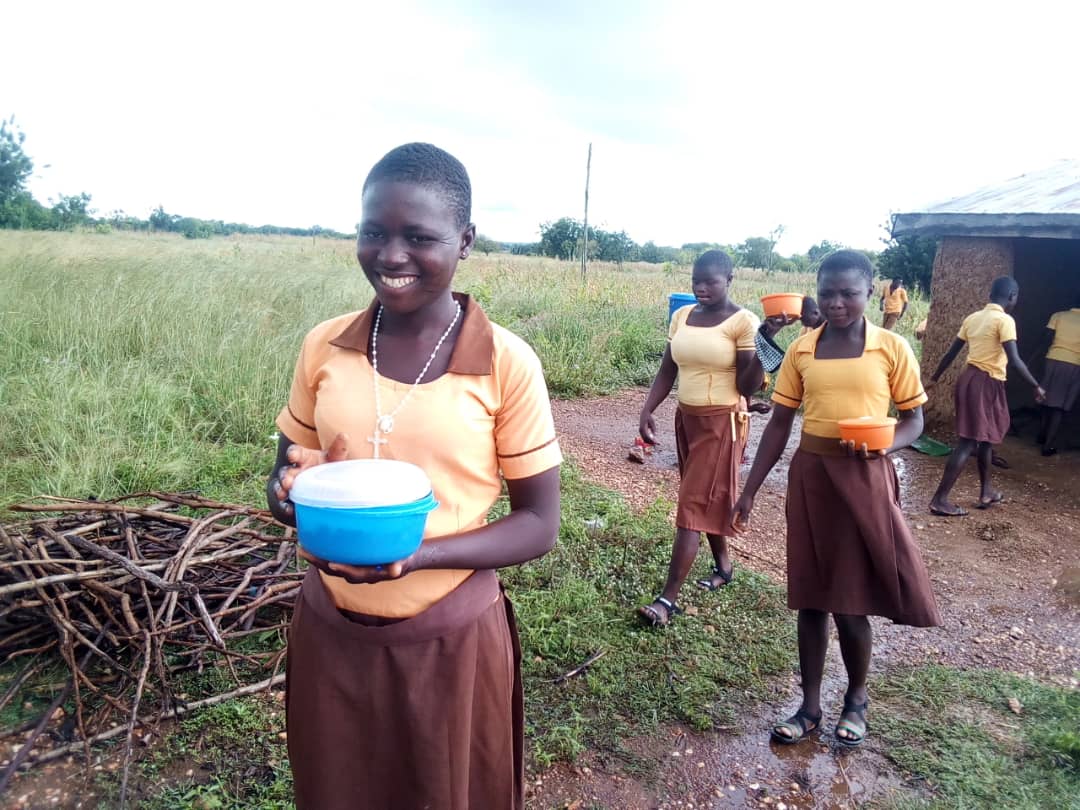The longest vacation period basic schools have in Ghana here is after the third term. This is the period between early August to early September. A time students really long for. They buy the books, uniforms, school sandals, school bags, and basic home necessities by themselves. So this period has a good number of days for students, including the girls, to work for money. This is the way students use this long vacation – an opportunity to revitalise, or, reload for the next academic year.
Olivia, a Form 3 girl in Biro Junior High School, is not left out. As a final year student, she is preparing very hard towards her final exam in September this year. Prior to being back to school after the lockdown, she travelled down south during the schools’ closure. Students from the north here travel down there to do different menial jobs to provide for themselves the basic school needs. Some farmed on people’s farms, others served in chop bars, others took care of stores, some even baby sit for mothers, but Olivia did Street Hawking. This is one of the dangerous menial jobs most girls often do down south to come back home confident in school.

Olivia, at Biro JHS, earlier this year. Behind her in the photo is her sister Agnes, who also travelled south this year
Olivia sold pies for a woman in Kumasi and received ₵14.00 to ₵20.00 daily (between £1.50- £3). She was given ₵100.00 or ₵200.00 worth of pies daily. How much she received daily depended on how much she was able to sell each day. “Also, the amount I received daily was subject to deduction based on how many of the pies I wasted”, she added.
We know how the streets and markets of Kumasi city look like – a slum, with overwhelming crowds – she often had some pies fell or stolen on the way while she carried it around. This also meant reduced pay for her. She was also vulnerable to being hit by vehicles, kidnap, rape, theft, robbery and bad peer influence.
Hard work is good, and laziness does not pay. The problem is that, according to her, she had the tendency to stay there and do that for a living. But she was determined to complete her basic education and even proceed to the next level. There are currently many others like Olivia from the north here who are down south. These are tempted to be content with what they get daily and may not be willing to return to school when schools are back in session. Let us encourage, motivate, inspire, tickle, do whatever good we can do to keep them in school. Why?
There is total hardship and enlarged families here in the north. These girls mostly come back home with unwanted pregnancies only to make their individual families hardship worse. This has adverse effect on the economy and the child individually. If you educate a boy, you educate an individual. But if you educate a girl, you educate a whole nation.
Donating just £20 to ATE’s Rebuild campaign can buy a ‘Back to School’ pack, where we make an individual assessment on what each child needs to be able to return to school – whether it’s new school books, a new uniform, support to get back from the south or even some shoes. You can also contribute to our Community Action Fund, which supports ATE’s advocacy work, carrying out delicate casework and community sensitisation to help with complex cases such as child marriage, children travelling south, teenage pregnancies and other vulnerable situations.
Every child has a right to attend school and gain a better future for themselves.
Support ATE’s Rebuild Campaign here
By Rexford Benon, Admin and MEL Leader and Hub Manager
